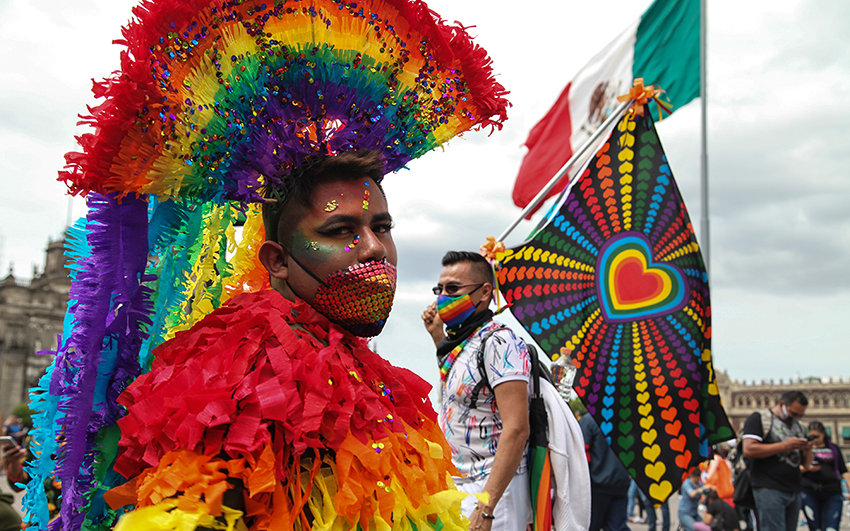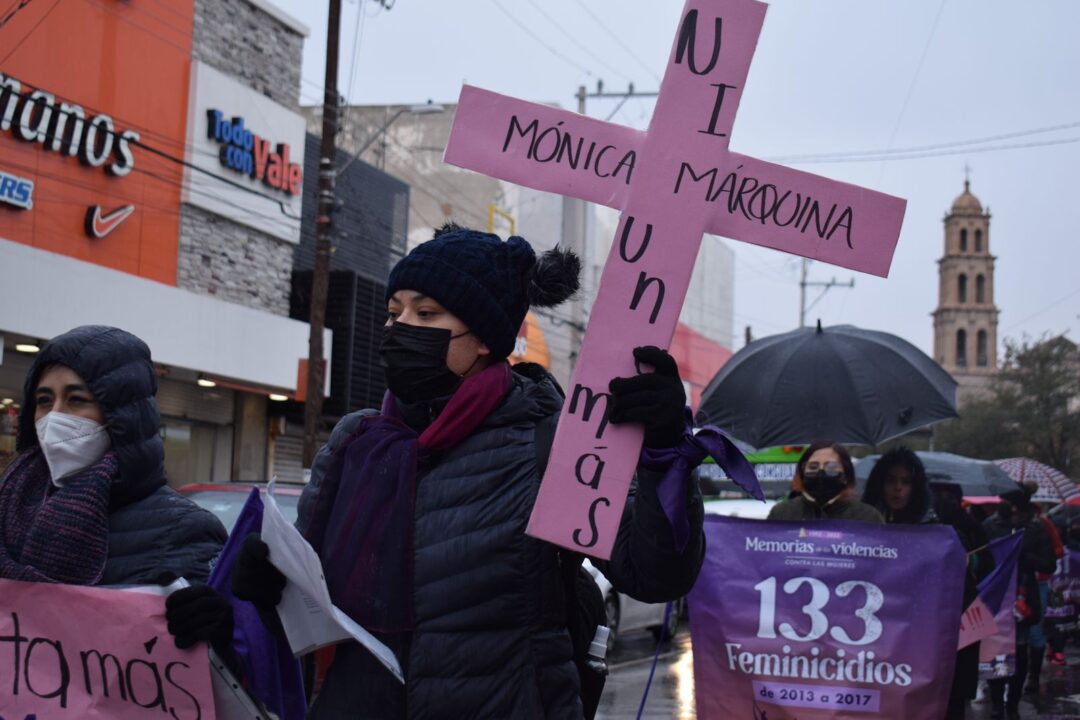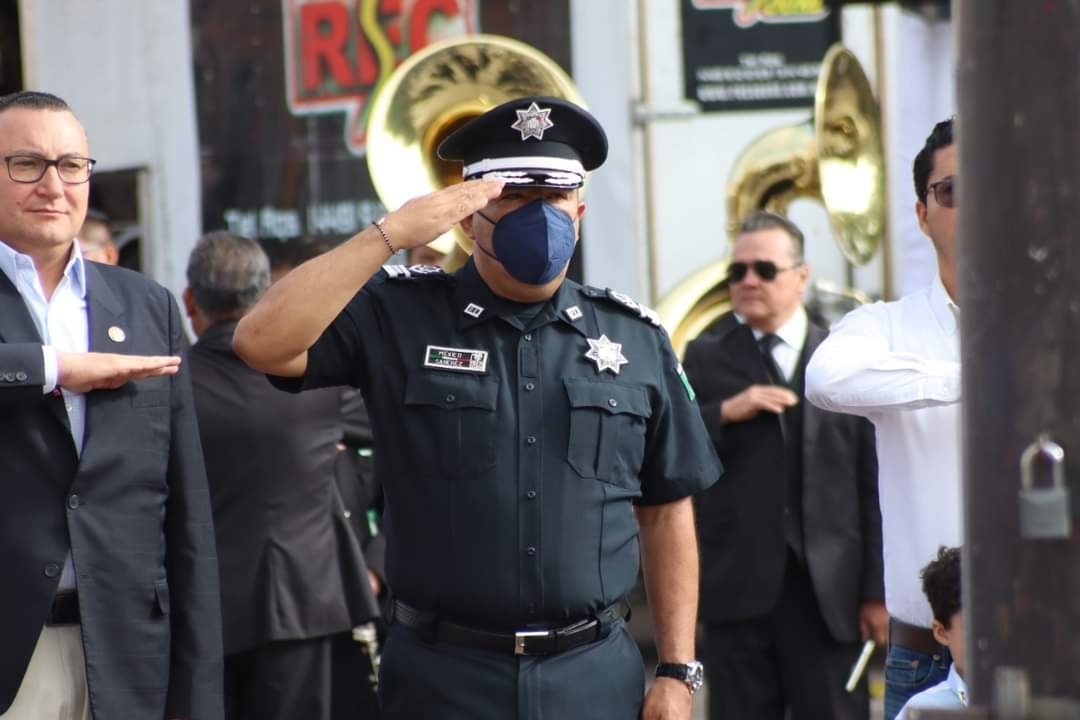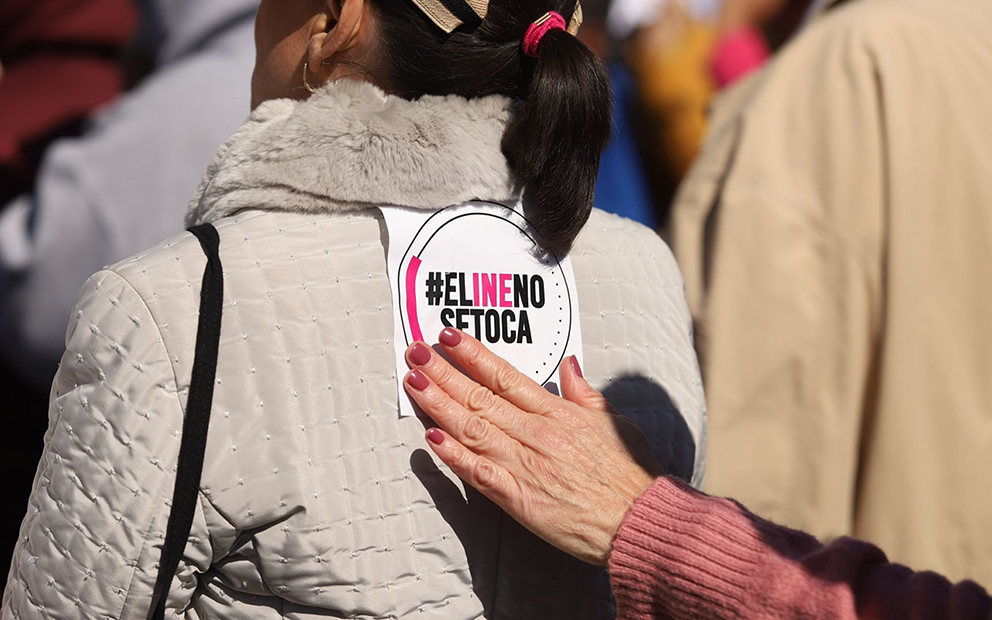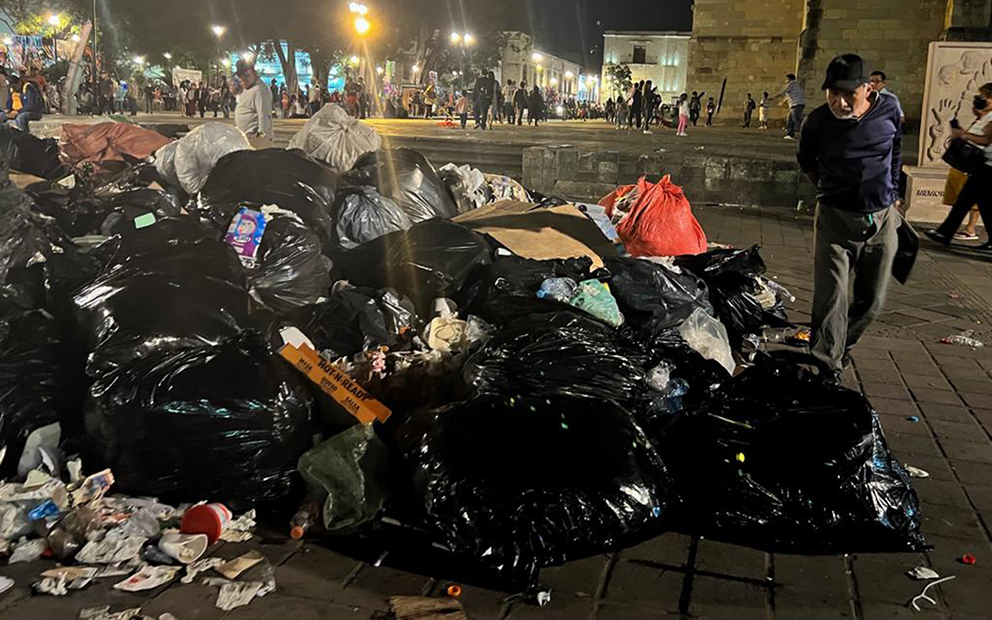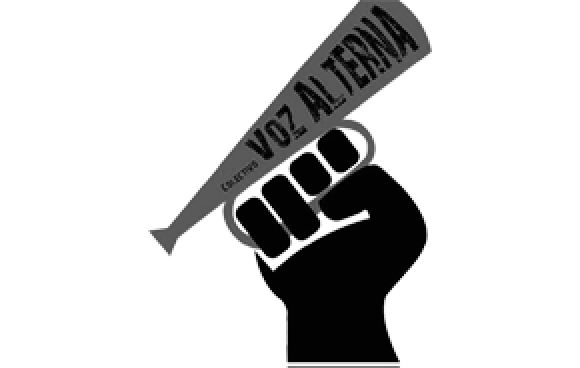After Mexico City’s 2020 Pride march was called off due to the pandemic, participants in this year’s march rose again to take the streets, all without the corporate sponsors of years past.
Text and photos by Belén Kemchs, originally published on June 27, 2021.
Translation by Elysse DaVega.
MEXICO CITY– On June 26, thousands of members and allies of the LGBTI+ community marched from the Angel of Independence down Paseo de la Reforma, Avenida Juárez, Avenida Hidalgo, Eje Central, 5 de Mayo to finally arrive at Mexico City’s Zócalo, the central plaza that houses national governmental buildings. They demanded equality, rights, and an end to violence and justice for those suffering or for those who are no longer with us.
After the 2020 Pride march was called off due to the pandemic, those participating in the 43rd march rose again to take the streets and wave their flags.

Just before noon, various collectives met at the traffic circle at the Angel of Independence to build up their spirits for the day, with one exception: due to the ongoing pandemic, the capital government prohibited the large, music-blasting floats that have become so popular in recent years’ marches.

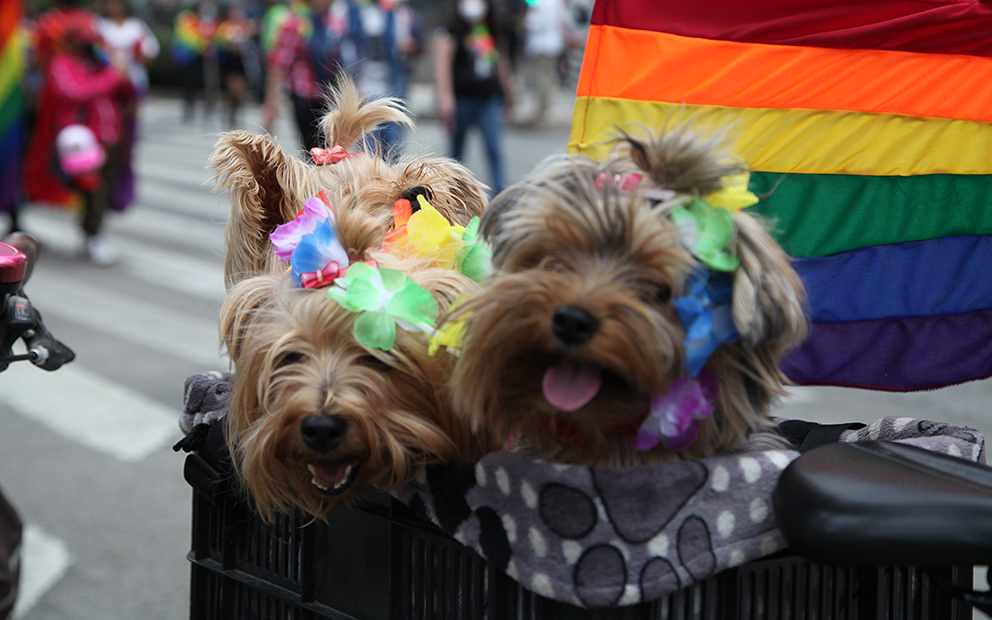
Some missed the music that usually accompanied the caravan as in years past, but most realized that this year’s environment felt more authentic due to the fact that brands couldn’t occupy their space.
For Kenya Cuevas, director of the Casa de las Muñecas Tiresias (which provides support for Mexico City’s most vulnerable residents) and of the first shelter for transgendered people in Latin America, this year’s march was real. It was a march to demand justice and bring attention to those in the queer community whose rights the government has ignored. «It was a historical day for Mexico,» she emphasized.

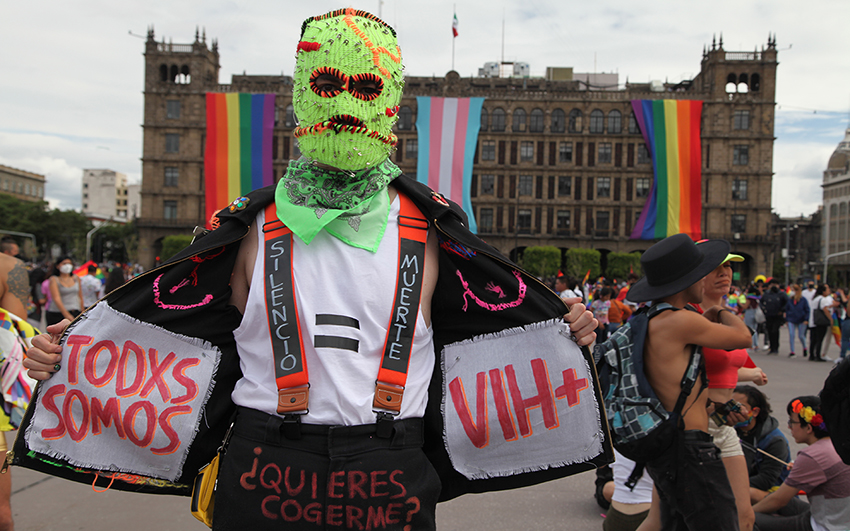
In years past, the colors that represented the communities were overshadowed by marketing strategies employing a kind of «image washing» (similar to pinkwashing). These campaigns encourage consumption under the promise that part of the profits will be donated to a particular cause, which in this case could be shelters or associations that help the LGBTQI+ community.
For many, this commercial practice is nothing more than hypocrisy. María J. mentioned she was happy that Uber didn’t come through with its usual float: «It’s a lot of ‘Long live pride!’, but I’m sure their labor policies aren’t actually that supportive. They just want to have a good, inclusive image.»
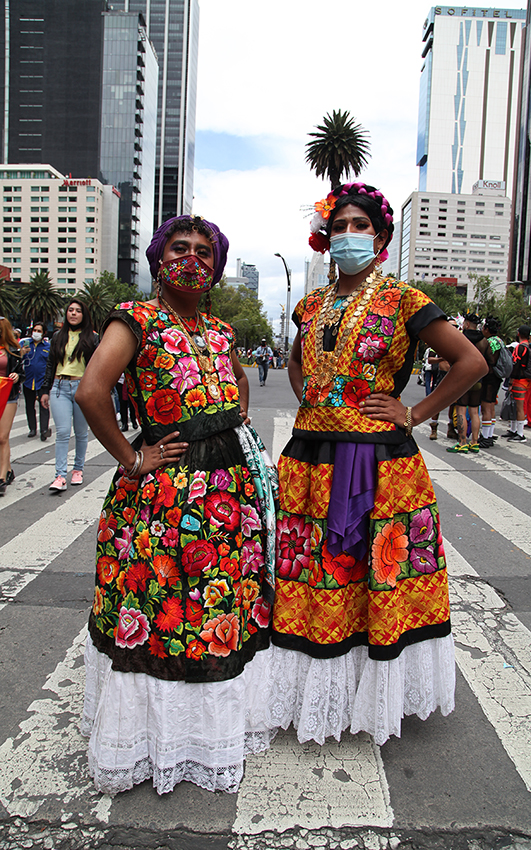
Appropriation of the LGBTQI+ community’s commitment to inclusivity has worked for many large commercial brands, but this year was a turning point for Pride to go back to being free of consumerism.
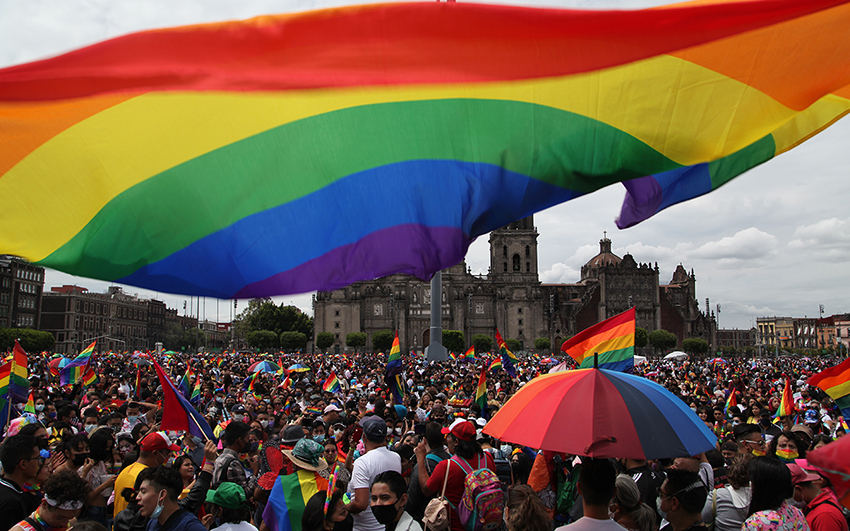
Under the overpasses at the Glorieta de los Insurgentes plaza, one of the most radical groups came together: folks who are part of the «Anti-Pride» movement, formed in opposition to corporate brands wanting to appropriate the movement.
«Don’t buy from them, because they’re not really interested in us. Support those who form part of the community and need it most.»
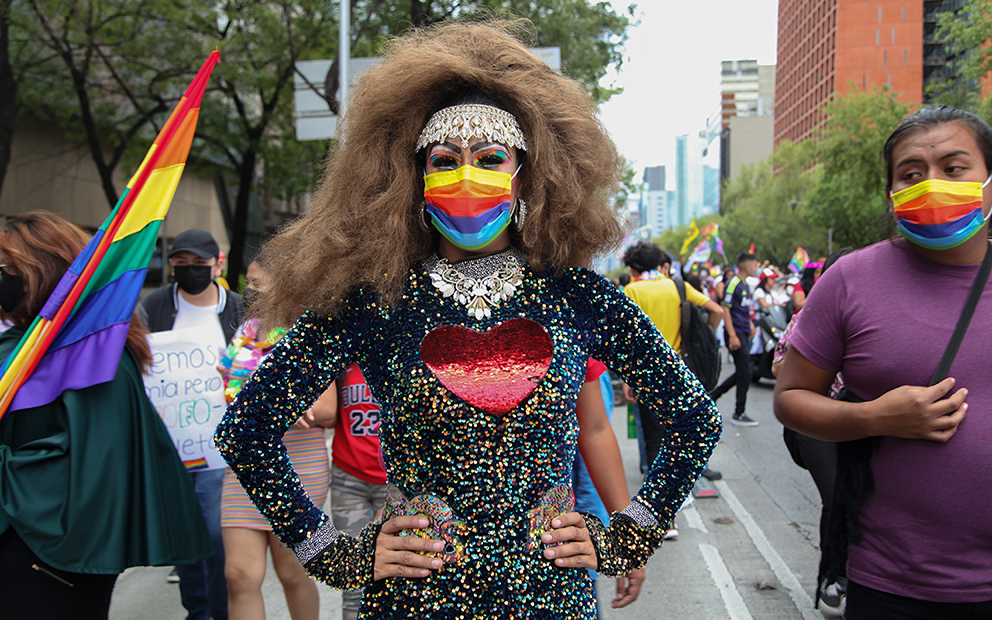
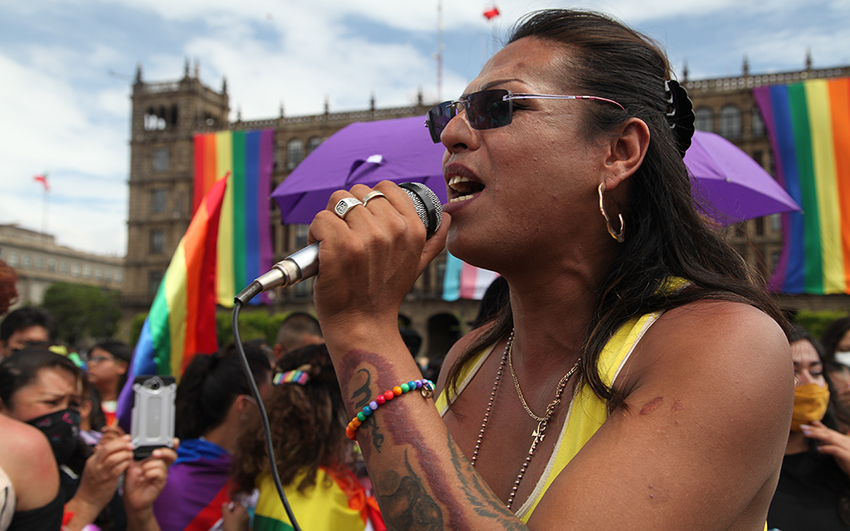
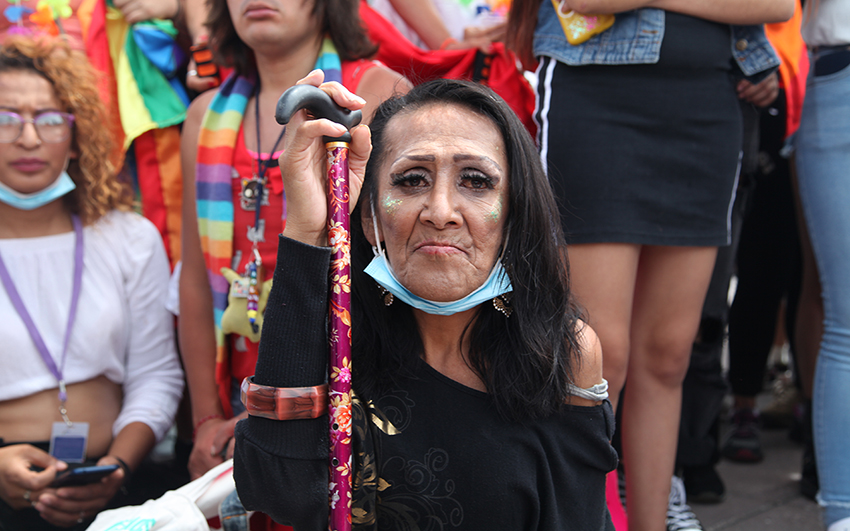
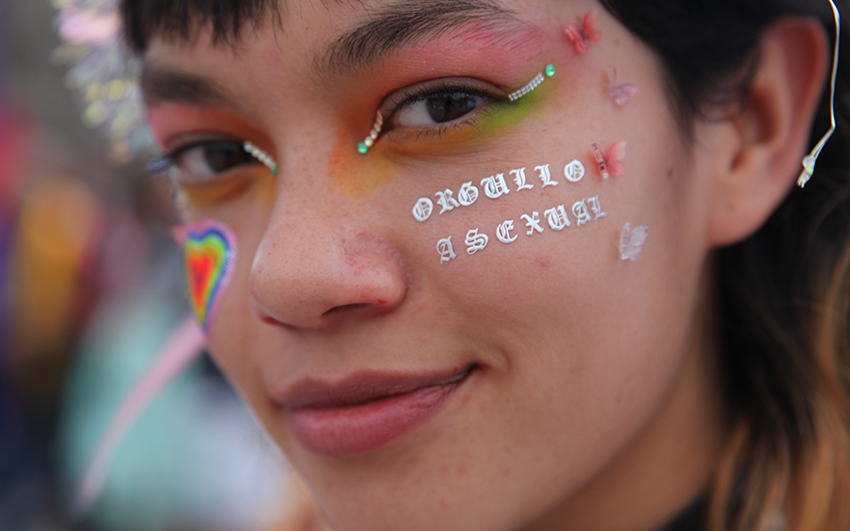

Ayúdanos a sostener un periodismo ético y responsable, que sirva para construir mejores sociedades. Patrocina una historia y forma parte de nuestra comunidad.
Dona

